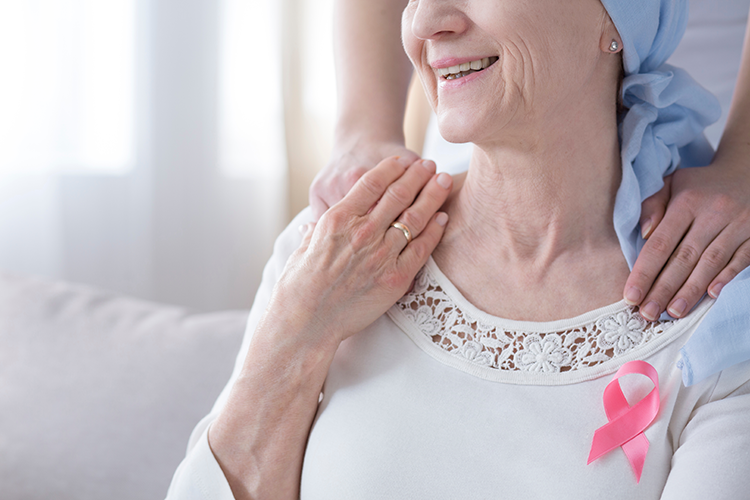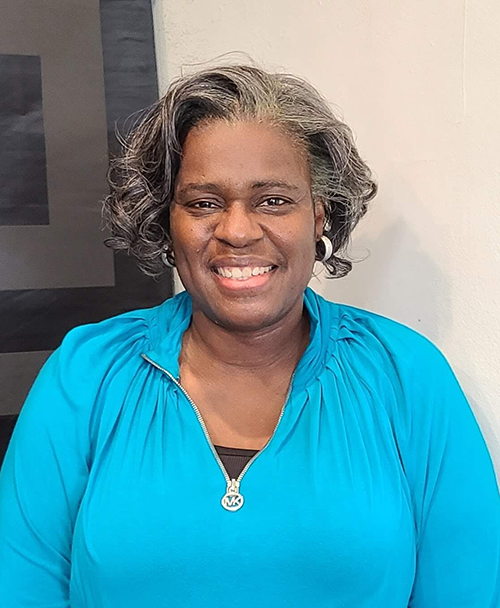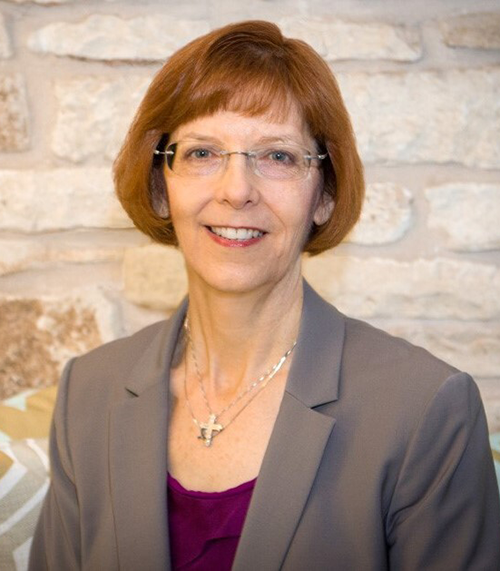Attorneys advocate for cancer patients and their caregivers through longtime ABA project

Image from Shutterstock.
Early in her career, Eunice Aikins-Afful worked as a clinical research coordinator at Johns Hopkins University. She spent five years in breast health services and the Neurosurgery Department interacting with patients who received a cancer diagnosis and needed help navigating radiation, surgery and other treatment options.
After Aikins-Afful started at Suffolk University Law School in 2012, she still wanted to support cancer patients and discovered what was then the ABA’s Breast Cancer Initiatives Task Force. The Commission on Women in the Profession had launched the pro bono project in 1993 to provide information on legal issues related to women’s health and resources to lawyers and patients facing breast cancer. It later moved to the Health Law Section.
 Eunice Aikins-Afful.
Eunice Aikins-Afful.“When you take on something like a law degree or a medical degree, there is an obligation to help someone other than yourself,” says Aikins-Afful, a clinical research project manager at BeiGene, a biotechnology company in Cambridge, Massachusetts. “We’re blessed to be able to do what we do, and then turn it around to someone who can’t do it for themselves. And it doesn’t have to be altruistic and fancy. It can simply just be answering a question.”
Aikins-Afful now chairs the project, which became the Cancer Legal Advocacy Interest Group. It expanded its mission to protect the legal rights of all cancer patients and their families in 2019. The group continues to train attorneys on how to help those facing a cancer diagnosis and treatment through workshops, webinars and written materials, such as its Cancer Legal Advocacy Guide and Cancer Legal Advocacy Toolkit.
The Cancer Legal Advocacy Interest Group also partners with the Cancer Legal Resource Center, a Disability Rights Legal Center program that provides free information and resources to survivors, caregivers, health care professionals and attorneys; and Triage Cancer, a nonprofit organization that provides free education on practical and legal issues facing cancer patients and their caregivers.
“We want to make sure that people understand they have access, whether it’s to clinical trials, whether it’s to physicians, whether it’s to legal information and advice,” Aikins-Afful says. “A lot more people will offer their services for free than you think. But if people don’t know where to go, or they think it’s going to cost them more than they have, they won’t do it.
“So, we’re just educating the public about what’s available.”
 Jennifer Rangel.
Jennifer Rangel.Jennifer Rangel got involved with the project in the 2000s, when she attended one of its workshops during a Health Law Section leadership meeting. She had personal experience with cancer, including losing her stepmother to breast cancer, and she became passionate about advocating for patients.
A former chair and now vice chair, Rangel says the Cancer Legal Advocacy Interest Group focused in recent years on connecting cancer patients and survivors with attorneys who can provide pro bono services in different areas.
These patients often need help making end-of-life decisions and preparing wills or trusts, she explains. They also face family law issues and employment law issues, including how to cover the cost of their treatment, access time off under the Family and Medical Leave Act or obtain accommodations once they return to work.
“What’s interesting is we’ve been able to work with some top employment law firms that primarily or almost exclusively represent employers, but they have been more than willing to come and speak to attorneys attending our workshops on the other side, on how to provide pro bono services,” says Rangel, a partner and health care attorney in Holland & Knight’s Austin, Texas, office.
The Cancer Legal Advocacy Interest Group educates attorneys on developments outside of the law. At past workshops, Rangel says, a radiologist presented on breast imaging and physicians discussed research and clinical trials. A breast cancer specialist also gave an exclusive tour of his surgery center and talked about his patients’ common concerns.
“Our audience, which is typically made up of lawyers who may not practice in any of these particular areas, want to know how to help, so we also try to provide some education on what’s going on in the medical area,” Rangel says. “Even though I have been doing this for so long, I feel like I am constantly learning something new.”
 Hilary H. Young. Photo by Amelia Johnson.
Hilary H. Young. Photo by Amelia Johnson.Hilary H. Young is another vice chair and longtime member of the Cancer Legal Advocacy Interest Group. When she becomes the project’s next chair in August, she hopes to continue training lawyers on the varied issues that arise for cancer patients. She also wants to get more ABA members involved in this work.
“So many of the issues, the legal issues, that we educate lawyers on to help with cancer legal advocacy are really not health law issues,” says Young, who is the immediate past chair of the Section Officers Conference and a past chair of the Health Law Section. “There are a lot of other groups out there that we think would have a lot to offer and a lot to gain from doing things with this group.”
She practices as a health law partner at Joy & Young in Austin, Texas, but emphasizes that members don’t need to belong to the Health Law Section to join the Cancer Legal Advocacy Interest Group. Young, who previously had breast cancer, adds that members who have had cancer or know someone who has dealt with the disease may also bring their valuable perspective to the project.
“It helps to take the experiences we’ve had and use them to help other people be in a position to help their friends, their family members, their clients,” Young says. “When you go through it, you learn things that work for you and are able to impart some of those lessons.”
For more information or to join, please visit the Cancer Legal Advocacy Interest Group’s website.



